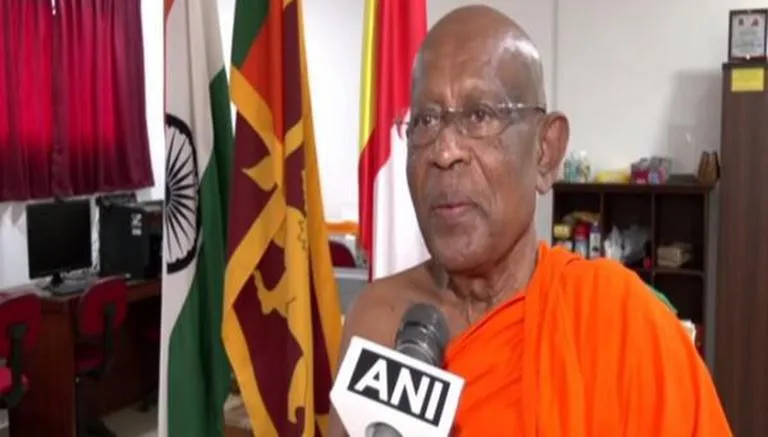As the protests against Sri Lankan government continue over the mishandling of the economy, an advisor to the Sri Lanka President Gotabaya Rajapaksa indicated that the ongoing protests against the Rajapaksa-led government were the results of fundamentalist groups taking advantage, especially drug dealers.
Speaking to ANI on Saturday, Walpole Piyananda, Advisor to the President of Sri Lanka on International Religious Affairs said that the government has tried to control drugs dealers “who have a lot of money”. He further added that “fundamental Leftist groups” in the country were also functioning against the government and sections of the minority community in the country “were angry” with the Rajapaksa government.
“Drug dealers are hanging around… this government tried to control (it), many of them (have been) caught. They are very angry with the government. They have a lot of money,” Piyananda told ANI. Acording to the ANI, he also implied that the persistent protests against the Sri Lankan government in which demands are being made for Gotabaya Rajapaksa’s resignation were also a consequence of “fundamentalist groups taking advantages right now, especially drug dealers.”
Piyananda claimed that the Catholic Church has a “misunderstanding” with the Rajapaksa government and that Muslims are “angry” with the government over the government’s decision to “reclaim” some of the “taken over” Buddhist temples in Northern and Eastern Sri Lanka.
In response to the present economic crisis, Piyananda stated that the Sri Lankan government has navigated the country through the COVID-19 pandemic. “They weren’t maybe thinking what had happened in the past,” he remarked, referring to people’s discontent due to economic difficulties.
‘India is like our big brother’
Expressing his gratitude towards India for helping the island country amid the economic crisis, Piyananda recalled the civilization links between India and Sri Lanka. “Thank you so much to India. India is like our big brother… all of our culture, custom, tradition, all of (it) came from India. We depend on India all the time,” he told ANI. A practising Buddhist monk, Piyananda said the current government of Sri Lanka endeavours to follow the “principles of Emperor Ashoka”. “Since our Lord Buddha was born in India… we have great relationships from that time till now,” he added.
Massive protests against Gotabaya government over economic crisis
Amid the worsening economic situation, the demonstrators are calling Sri Lankan President Gotabaya Rajapaksa’s government a “tyrant” and alleged that his party has siphoned money from citizens “for years and years”. Reeling under relentless financial struggle to make ends meet, Sri Lankan natives are unsure if the incumbent will be able to “fix the economy.”
“For years and years, the Rajapaksa government took money from us. They stole from us. We are sick and tired of this tyranny because there is so much nepotism here. Prime Minister Mahinda Rajapaksa and President Gotabaya Rajapaksa are brothers and we want them to go from here because we do not see any prosperity for our nation. As long as they are here they will not be able to fix the economy,” a participant in the Galle Face protest said, as quoted by ANI.
The massive protests that broke out earlier last week have now continued for 9 days. The demonstrations continue as the island nation faces steep economic and political turmoil. Apolitical protestors have set up makeshift tents at the Galle Face premises, providing free food, water, and emergency medical help for those arriving to support the outcry against the government.
The developments come as Sri Lanka’s 22 million people are crushed under the worst-in-a-decade economic crisis, leading to 13-hour long power cuts, and a lack of fuel, food, and medical supplies. The severity of the situation can also be evaluated by Colombo’s failure to pay its foreign debts for the first time since its independence. Inflation in the country is at an all-time high of 17.5% with rice prices touching 500 Sri Lankan rupees. According to experts, the crisis stemmed from foreign borrowings, ill-advised tax cuts, and “debt-trap diplomacy” of China followed by the COVID-19 lockdowns.

